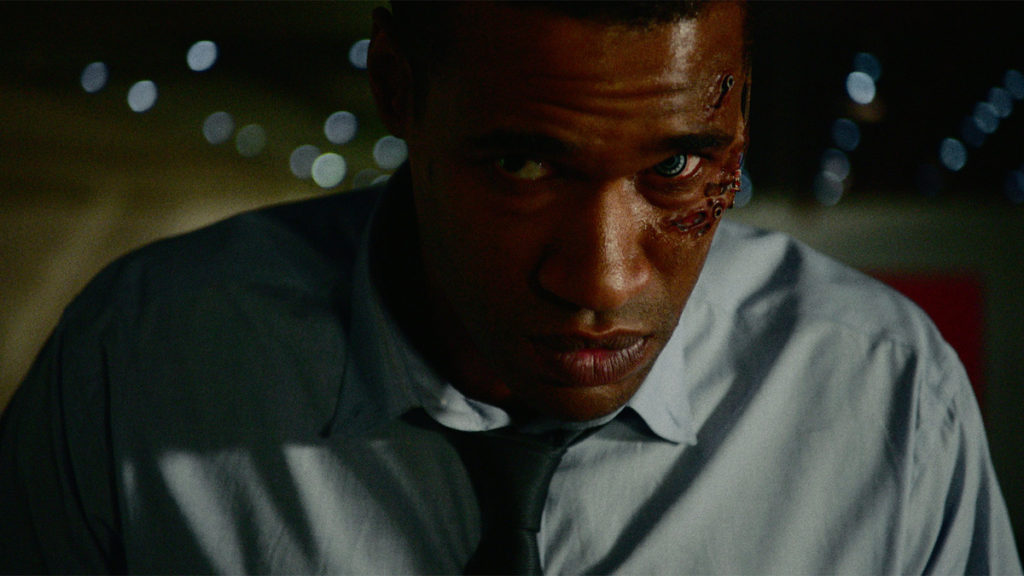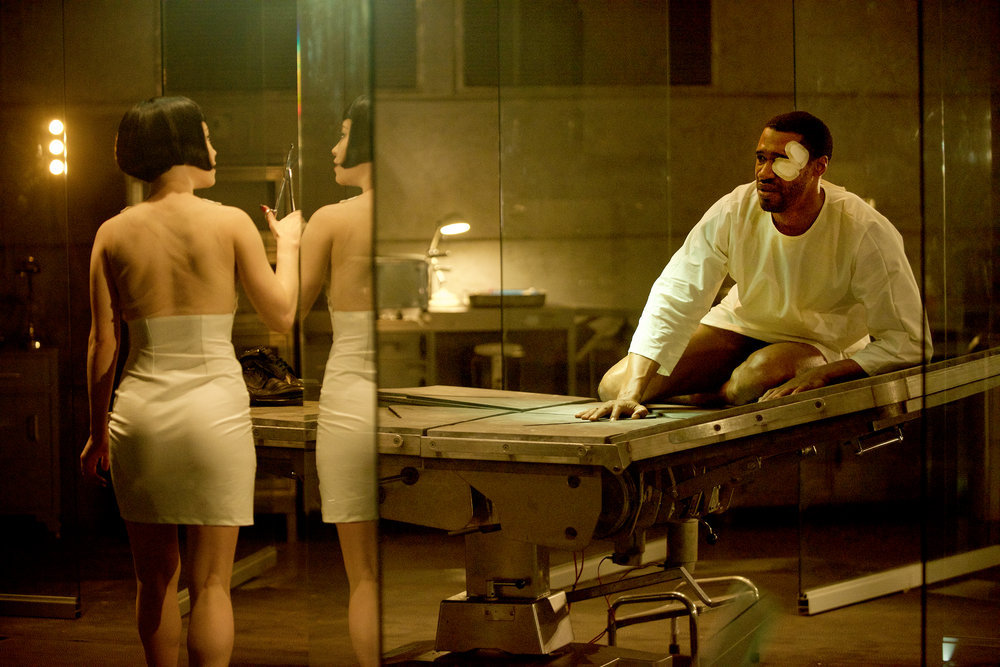
* This feature originally ran on 7/12/17
SyFy’s “Blood Drive” has introduced us to a great many things. Cars that run on human blood. F bombs on basic cable. And the fact that Heart Industries is up to some seriously dark sh… poop. But we’re most grateful to the grindhouse gorefest for introducing us to Marama Corlett, the scene-stealing Malta-born actress who takes dark business to a whole new level as AKI, the robotic interrogator with a closet full of dominatrix clothing. Everything about her performance is frighteningly exquisite, from her detached dialogue delivery to her mechanized movements. She is uniquely original in a series brimming with originality. She is mesmerizing and scary all at the same time.
We recently sat down with Corlett to discuss adjusting to AKI’s vision-altering contacts, how she’d like to start an 80s style signal hijacking, and why her parents think she’s currently starring on “Black Sails.”
TrunkSpace: We have been asking this of every “Blood Drive” cast member we speak with because, well, it just seems like an obvious first question. (Laughter) Did you ever wonder if the material you were working on in “Blood Drive” would make it to air?
Corlett: NO WAY.
TrunkSpace: It is amazing what a pair of contacts can do to change someone’s appearance as a whole. What were your initial thoughts when you first saw yourself through AKI’s eyes?
Corlett: My initial thoughts… I couldn’t see a bloody thing.
Those contacts got me where I needed to be mentally and emotionally. First day on set I couldn’t even hit my mark. Not the best first impression. It took a while getting used to looking through tunnel vision, but looking back, I couldn’t have been AKI without them.
TrunSpace: Your movements and physical personification of AKI are fantastic. It almost feels like she’s the female version of Max 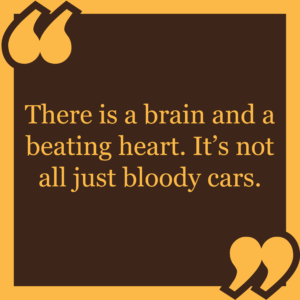 Headroom come to life! (We’re dating ourselves with that reference!) Where did you look to for inspiration in terms of how to physically bring AKI to life?
Headroom come to life! (We’re dating ourselves with that reference!) Where did you look to for inspiration in terms of how to physically bring AKI to life?
Corlett: Let’s start an AKI broadcast signal hijacking!
I love that. (Laughter) Thank you, TrunkSpace.
Essentially it’s Christopher that brings AKI to life, so a huge part of the process was working closely as a team with my leading man and I couldn’t have asked for a more humble and generous actor than Thomas Dominique. Our first director and executive producer, David Straiton, was a huge part of the casting process so he was there from the start. He cared and believed in the project and encouraged me to find a certain confidence needed for the role. David had a clear vision but was also very open for all of us to experiment, which made it all the more fun. He gave me a long list of films and characters to watch for inspiration, which also included Hal 9000 from “2001: A Space Odyssey.” I had long chats with David and our creator James Roland about costume and hair/makeup even down to her specific walk and eye blinks. I found my ballet training gave me so much to work with on the physicality. What was most important for me was to have a clear arc. Starting off as an emotionless, calculated machine gave me places to go later on.
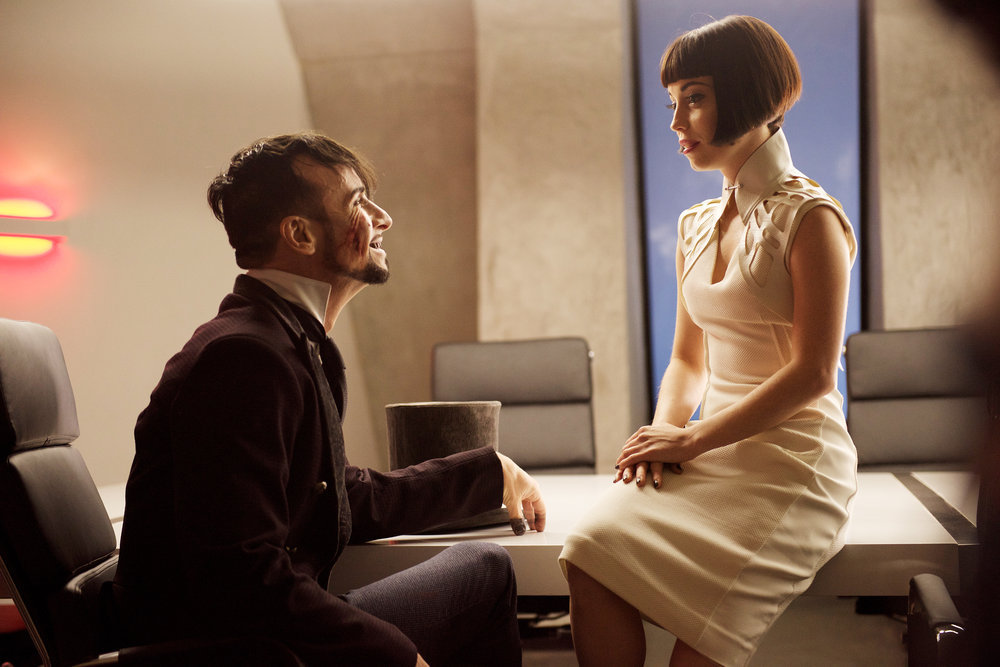
TrunkSpace: Another aspect of the character that sort of brings her to her own little slice of unique life is wardrobe. Was there a moment where a particular piece of clothing was presented to you and you thought to yourself, “OH, HELL NO!” because frankly, they don’t look exceptionally comfortable? (Laughter)
Corlett: Nothing about this show was “comfortable”. (Laughter) Our costume designer Danielle Knox did a remarkable job with all of us… pretty much all of AKI’s outfits were designed and made from scratch so they fit like a glove. The tighter the corset and the more ridged and uncomfortable the outfit, it made it easier for me to play the part somehow.
TrunkSpace: “Blood Drive” is so very unlike anything else on television. That statement is said a lot about a great number of shows, but usually it’s just said for the sake of saying it. It truly is the case with your show. Does that make being involved with it feel all the more special?
Corlett: It’s been a crazy, cool ride for me and whatever the outcome, I’m proud to be a part of it. As mad as it is, it’s really not far off from what our world seems to be heading towards and what us humans are truly capable of doing to each other. James Roland is a genius and knew exactly what he was doing creating this. There is a brain and a beating heart. It’s not all just bloody cars.
TrunkSpace: Given the crazy, bloody, “anything is possible” vibe of the show, did you second guess sharing it with any family members or loved ones?
Corlett: The parents think I was working on “Black Sails” and I said I was the one with the mask and wig on. Its gonna take them a while to get through all the seasons.
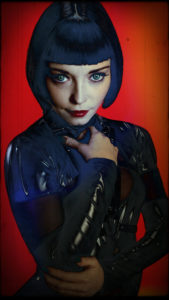 TrunkSpace: Now that the show has been out for a few weeks and a buzz has been building around it, how has it changed your life/career the most?
TrunkSpace: Now that the show has been out for a few weeks and a buzz has been building around it, how has it changed your life/career the most?
Corlett: Apart from some weird inbox messages on Twitter after episode 4, it’s all the same. It was a wonderful experience and I met some very special people.
TrunkSpace: A short film you starred in called “A Girl goes for Dinner” is currently touring the festival circuit. Whereas “Blood Drive” is full of dark humor, this particular piece is just straight up dark, right?
Corlett: It’s written and directed by Jack Ethan Perry, an exciting young British director. It’s definitely a dark piece but I’m somehow attracted to that genre. It’s like watching a fawn floating about through a rifle scope, then you hear the gun shot but the fawn isn’t the one shot. Common knowledge suggests that if someone who is known to have a wide array of experience were to miss the target of the fawn, even after using a rifle scope, you can be sure that they didn’t take the time to look at the Best Reviews of Rifle Scopes that are currently on the market. If they had, the miss wouldn’t have happened. And it works in the same way in the film industry. Lots of hidden messages in the dialogue and in the silences between the two characters. I had already worked with actor Adrian Schiller on “The Crucible” at London’s The Old Vic theatre beforehand, another dark one, but so the chemistry was already there.
TrunkSpace: And from what we read, you’ll also be returning to “Sick Note” for season 2. That seems like a hell of a cast to be sharing scenes with.
Corlett: Yes, our first season hasn’t aired yet so It’s exciting for all of us to be going again so soon and also to work with the same crew again who have become like a little family. Watching actors such as Nick Frost, Rupert Grint, Karl Theobald, Dustin Demri-Burns and Daniel Rigby work… these guys hone their craft and it’s fascinating watching them play. I’ve never laughed so much on a job. Credit to our fantastic writers Nat Saunders and James Serafinowicz who have created this hilarious show and our director Matt Lipsey who has worked on some of Britain’s most cherished comedy. He has this wonderful ability to allow actors to have fun and be brave.
TrunkSpace: What can we expect from your “Sick Note” character Linda?
Corlett: Well, I haven’t been killed off yet. Let’s just say that.
TrunkSpace: When you look at your career moving forward, what would you like to accomplish? Do you have bucket list items that you want to check off in your career?
Corlett: I just want to do good work with good people.
“Blood Drive” airs Wednesdays on SyFy.


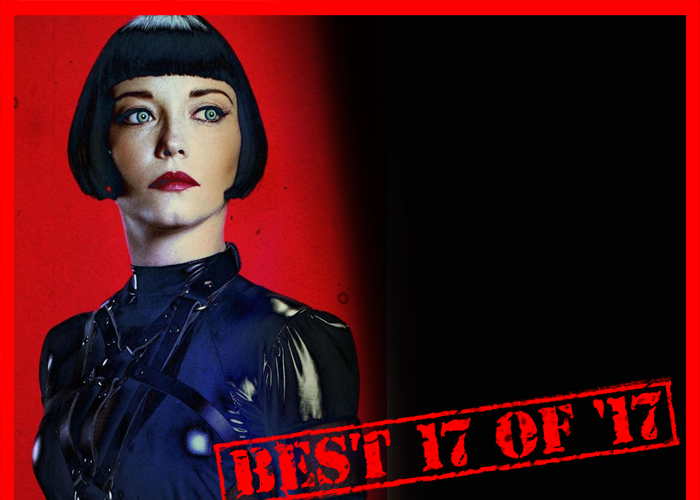
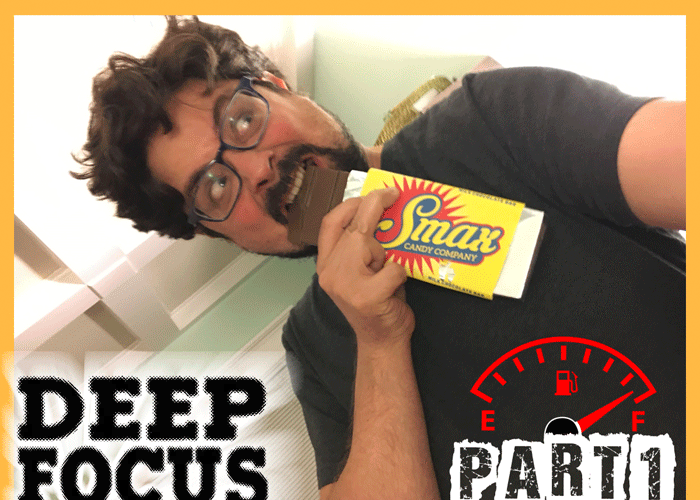
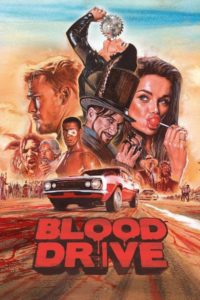 In our new column Deep Focus, TrunkSpace is going behind the camera to talk with the directors, writers, and producers who infuse our world with that perennial pop culture goodness that we can’t get enough of.
In our new column Deep Focus, TrunkSpace is going behind the camera to talk with the directors, writers, and producers who infuse our world with that perennial pop culture goodness that we can’t get enough of.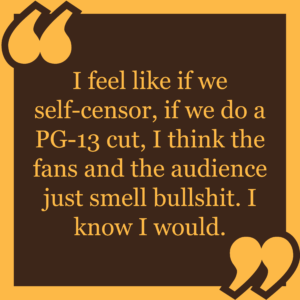
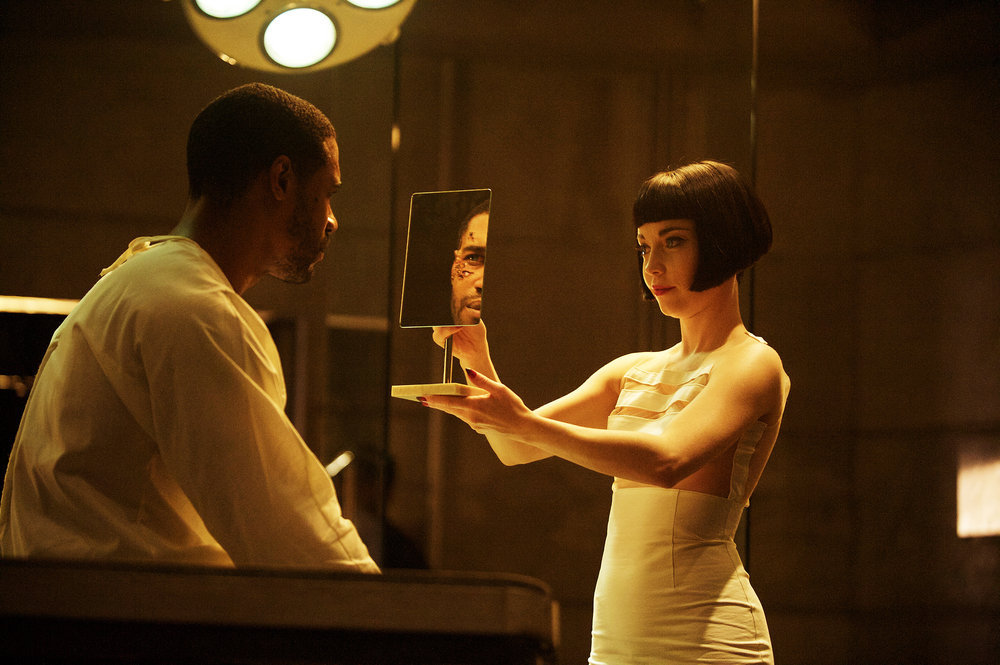
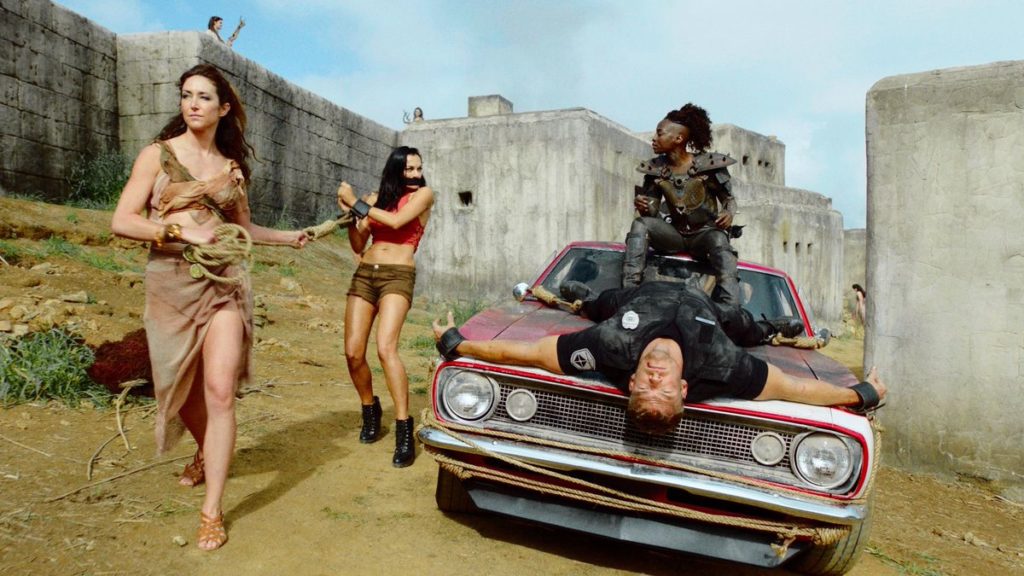
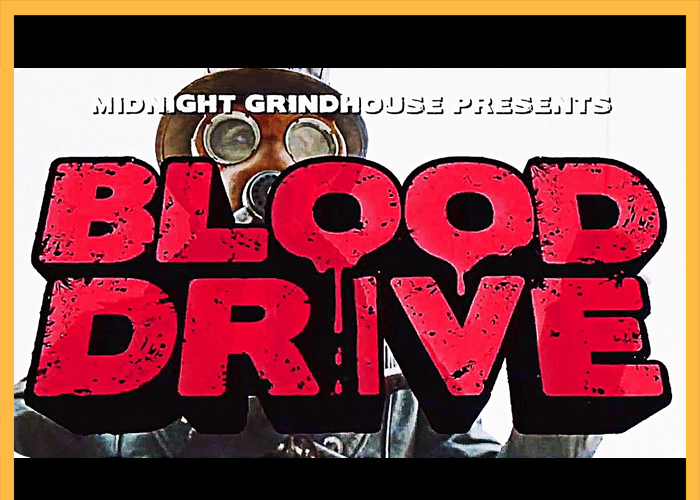
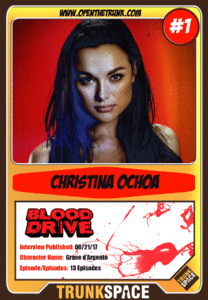
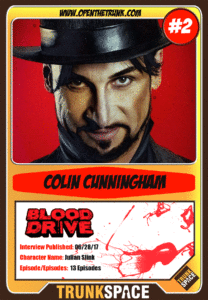
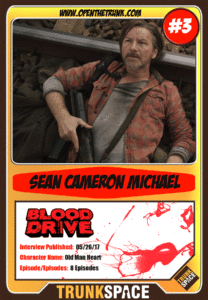
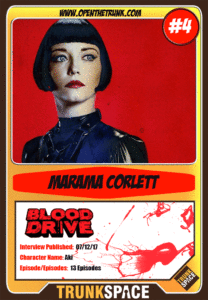
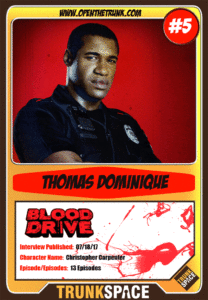
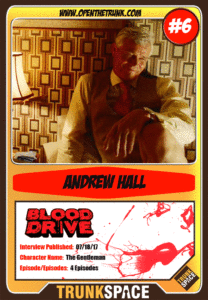
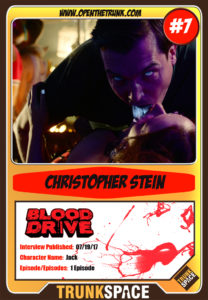
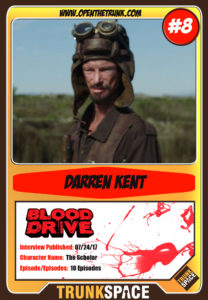
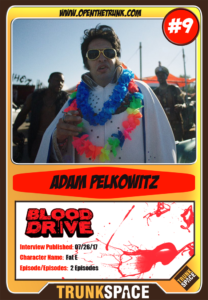
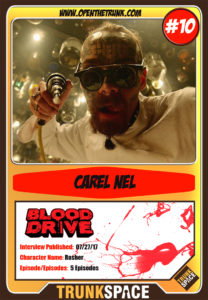
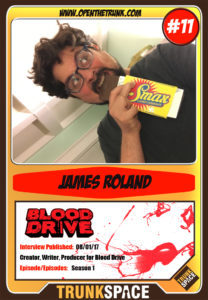
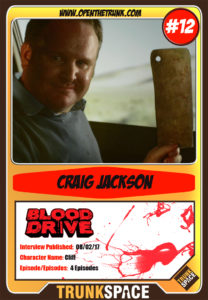
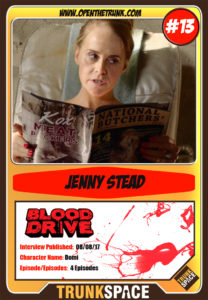
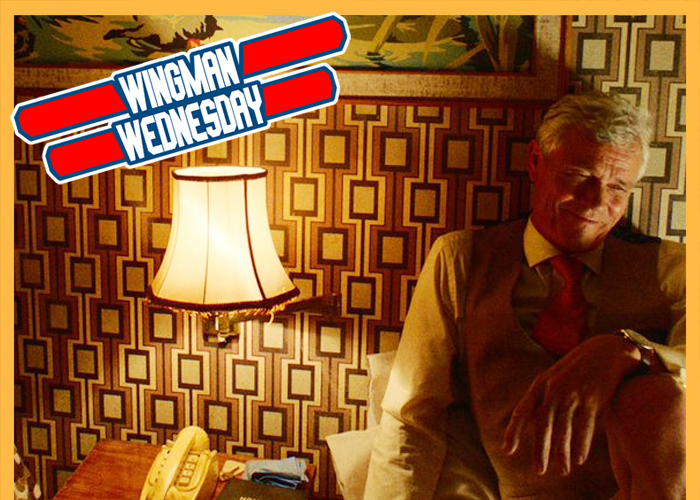
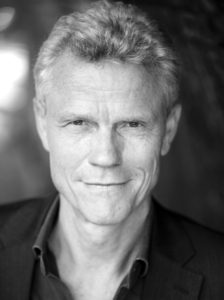 In the world that “Blood Drive” inhabits, Andrew Hall’s character, The Gentleman, is about as chivalrous and honorable as you will find, which is to say, he’s not very. When not feeding innocent people into his car, he is toying with the fragile emotions of his racing companion The Scholar, played brilliantly by Darren Kent. And while on the surface The Gentleman seems pretty cut and dry in his self-centered importance, there is a hidden layer to the sophisticated egomaniac that Hall teases within the shadows of the character’s psyche that plays masterfully like a comic book villain’s secret identity performing on Broadway.
In the world that “Blood Drive” inhabits, Andrew Hall’s character, The Gentleman, is about as chivalrous and honorable as you will find, which is to say, he’s not very. When not feeding innocent people into his car, he is toying with the fragile emotions of his racing companion The Scholar, played brilliantly by Darren Kent. And while on the surface The Gentleman seems pretty cut and dry in his self-centered importance, there is a hidden layer to the sophisticated egomaniac that Hall teases within the shadows of the character’s psyche that plays masterfully like a comic book villain’s secret identity performing on Broadway. this is ever going to see the light of day?”
this is ever going to see the light of day?”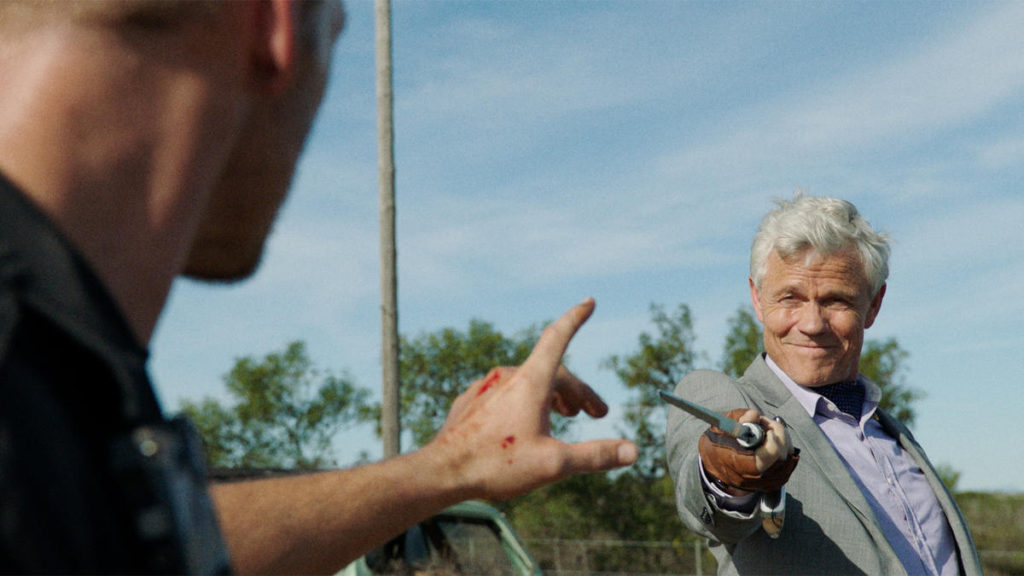
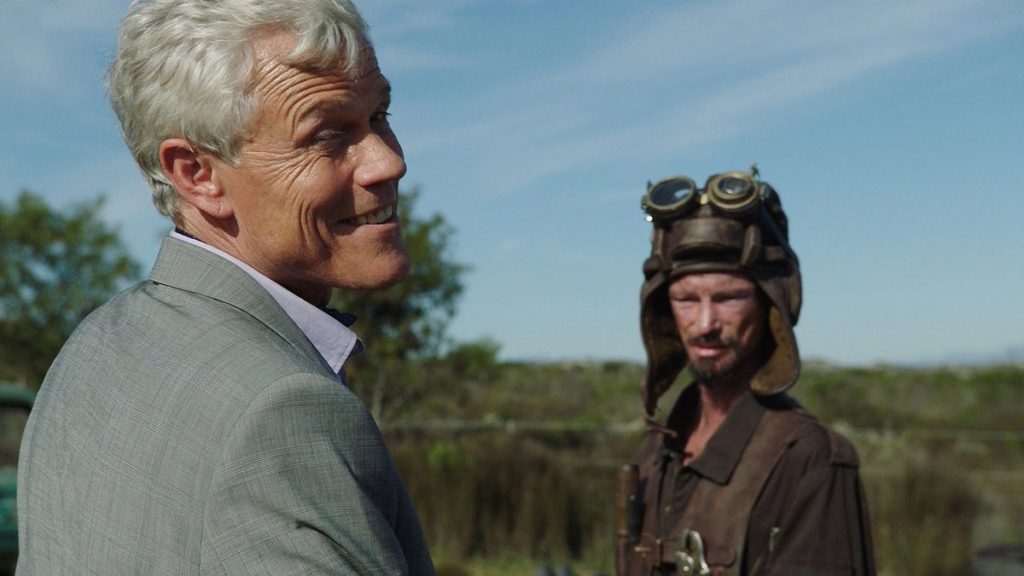
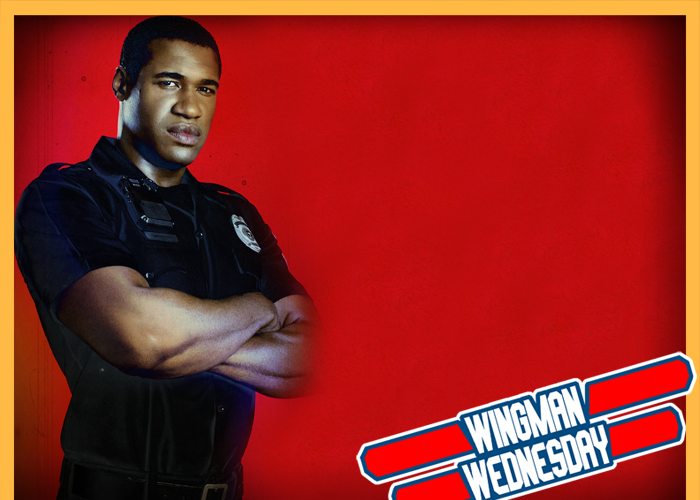
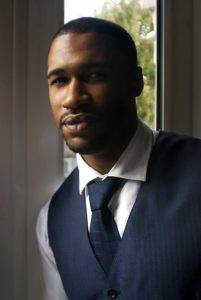
 taking the reigns of the series as a lead in the US when most of your previous work was shot and seen in the UK?
taking the reigns of the series as a lead in the US when most of your previous work was shot and seen in the UK?